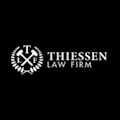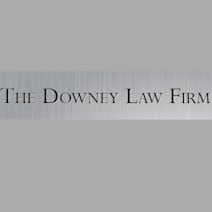Top Houston, TX Telemarketing Fraud Lawyers Near You
Rated Top 100 Attorney in Texas by Super Lawyers 2019 - 2022. Triple Board Certified, DWI Specialist. We Do Not Back Down!
Our experienced & qualified Houston Criminal defense lawyer takes an aggressive approach toward defending clients & is ready to fight for you. ACS-CHAL Forensic Lawyer-Scientist
When It's All on The Line, You Want the Best Criminal Lawyer to Defend You.
Se Habla Español
Free Consultation
Our firm has been fighting for clients in Houston for years. Don't hesitate- Call us today!
Se Habla Español
Free Consultation
Our Goal Is Dismissal Or Reduced Sentences For All Of Our Clients. Call For Help With Any Criminal Related Charges! South Texas’ Dwi & Criminal Defense Lawyer-Scientist.
Se Habla Español
Free Consultation
Board Certified in both DWI and Criminal Defense. Hire a proven trial lawyer that will will aggressively & professionally advocate on your behalf. Call us for a free consultation.
Free Consultation
We strive to get you the best possible outcome, and we’ll fight to secure a result that will have minimal-to-nonexistent impact on your life.
6302 W. Broadway St, Ste. 250, Pearland, TX 77581
Other Nearby Offices
Getting legal representation for your Telemarketing Fraud issue is easier than you think. Let Scott M. Brown & Associates in Houston, Texas help you today.
Se Habla Español
Virtual Appointments
108 E Magnolia St, Angleton, TX 77515
Jeff Gilbert Law Office, serving clients in the Houston, Texas area, a reputable legal practice for Telemarketing Fraud issues.
Se Habla Español
Free Consultation
1201 Fannin Street, Suite 262, Houston, TX 77002
Other Nearby Offices
Bulldog Law has experience helping clients with their Telemarketing Fraud needs in Houston, Texas.
Se Habla Español
Free Consultation
Virtual Appointments
2814 Hamilton St, Houston, TX 77004
Contact The Downey Law Firm in Houston, Texas for experienced legal assistance in Telemarketing Fraud.
Free Consultation
1415 N Loop W Fwy, Suite 905, Houston, TX 77008
917 Franklin Street, Fourth Floor, Houston, TX 77002
4400 Post Oak Parkway, Suite 2850, Houston, TX 77027
6200 Chase Tower, 600 Travis Street, Houston, TX 77002
819 Lovett Boulevard, Houston, TX 77006
1330 Post Oak Boulevard, Suite 800, Houston, TX 77056-3166
2180 North Loop West, Suite 310, Houston, TX 77018
1100 Louisiana Street, Suite 4000, Houston, TX 77002
811 Main Street, Suite 1100, Houston, TX 77002
1111 North Loop W, Ste 1118, Houston, TX 77008
717 Texas Ave, Suite 2100, Houston, TX 77002
5300 Memorial Drive, Suite 750, Houston, TX 77007
909 Fannin St., Ste. 3300, Houston, TX 77010
The Kirby Mansion, 2000 Smith Street, Houston, TX 77002
600 Travis St, Suite 2350, Houston, TX 77002
7151 Office City Drive, Houston, TX 77087
8441 Gulf Fwy, Ste 210, Houston, TX 77017
2211 Norfolk Street, Suite 735, Houston, TX 77098
3200 Southwest Freeway, Suite 3200, Houston, TX 77027
2616 S Loop W, Suite 218, Houston, TX 77054
6575 West Loop South, Suite 500, Bellaire, TX 77401
Houston Telemarketing Fraud Information
Lead Counsel independently verifies Telemarketing Fraud attorneys in Houston and checks their standing with Texas bar associations.
Our Verification Process and Criteria
Ample Experience
Attorneys must meet stringent qualifications and prove they practice in the area of law they’re verified in.Good Standing
Be in good standing with their bar associations and maintain a clean disciplinary record.Annual Review
Submit to an annual review to retain their Lead Counsel Verified status.Client Commitment
Pledge to follow the highest quality client service and ethical standards.
How Does Telemarketing Fraud Work?
Telemarketing fraud is the practice of scamming or fleecing recipients of your call by falsely representing a legitimate business or other enterprise.
Typically, scammers begin the call by creating a sense of urgency within the recipient of the call — perhaps saying that the recipient has won a prize (a cruise, etc.) and must supply their credit card information to pay for a nominal deposit. While a large number of call recipients may hang up or refuse to comply, a certain percentage of individuals inevitably will comply, and this is the payoff for the fraudster.
Once purchase or cash advances have been made against the victim’s card the scammer disappears.
What Are Some Examples of Telemarketing Fraud?
There are a number of popular telemarketing fraud schemes, ranging from the free cruise or vacation scam to simple cold-calling for sales products that will never be delivered (nonexistent culinary products, beauty products, medical products, etc.).
Perhaps the most popular example of telemarketing fraud involves the overpayment scheme. In this scenario, fraudsters use the phone to call unsuspecting victims while adopting the persona of a collections or accounting agent for a legitimate business or government agency such as VISA or the IRS. Under this guise, the fraudster advises the victim that they are in debt, with interest accruing at an unacceptable rate, and that they must pay their debt outstanding immediately. By using the aura of authority to intimidate their victims — as well as by creating a sense of urgency in order to get the victim to comply immediately, without considering the consequences or reliability of the caller — fraudsters manipulate their victims into emptying their bank accounts.
Who Investigates Telemarketing Fraud?
The Federal Trade Commission (FTC) is charged with investigating most serious cases of telemarketing fraud.
What Is the Penalty for Phone Scamming?
At the federal level, telemarketing fraud and email fraud are bundled together in the United States Code. Per these guidelines, there is an automatic forfeiture of all proceeds gained from the fraud in order both to make restitution to the victim(s) while also acting as a punitive measure. Penalties can be enhanced if fraudsters are seen to be taking advantage of pensioners or the elderly, with mandatory penalties ranging from 5 to 10 years in jail.
Generally speaking, phone scamming and telemarketing fraud are also prosecuted under the broader federal fraud statutes (regarding mail or wire fraud). Such offenses can lead to a punishment of no more than five years in federal prison — before considering aggravating elements.
Though telemarketing and email fraud are typically investigated by the FTC and charges are generally laid in federal court, states are also empowered to levy civil fines and further penalties for minor infractions. Fines can range from $1,000 to $3,000 per offense, plus restitution for any ill-gotten gains.
Can You Go to Jail for Telemarketing Fraud?
Yes. Because telemarketing fraud is so closely connected to other forms of fraud at the federal level, it is certainly possible to face incarceration in federal prison in response to a conviction.
For this reason, you should immediately secure the services of a skilled criminal defense attorney if you are facing charges related to telemarketing fraud. Not only can an attorney who is knowledgeable in the field of fraud law help you to navigate your charges — and how best to deal with them — but attorney-client privilege protects your discussions, keeping them private and allowing for honest conversation.
In many cases, your lawyer may be able to negotiate with the prosecution in favor of a reduced sentence, perhaps avoiding the prospect of jail entirely. A plea bargain may involve further financial restitution, some form of community service or both. A conviction on federal fraud charges is a very serious matter, and repeat offenders — or those who are accused of defrauding pensioners or other vulnerable populations — could face a lengthy prison sentence if found guilty.











